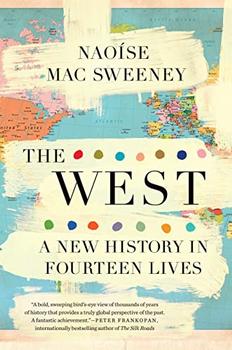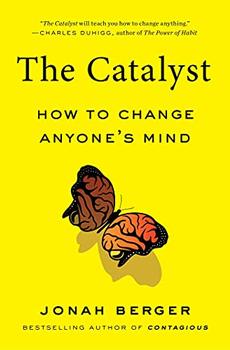Summary | Excerpt | Reviews | Beyond the book | Read-Alikes | Genres & Themes | Author Bio

What Ten Thinkers Can Teach Us About Science and Authority
by Robert P. CreaseThe longest glacier in France, the Mer de Glace, is losing roughly 12 feet of ice height each year. The measurable change to this glacier, and many others, is concrete evidence of global warming. Evidence, though, is not always convincing. Over a quarter of the members of the 116th U.S. Congress are climate change deniers, even as recent climate reports present an ominous global outlook. For many of us, this categorical denial of climate science is not only exasperating, it's chilling. We read the reports, we understand the enormous cost of inaction. Why don't they?
Robert P. Crease, philosophy professor and author, takes on this question by showing how great minds throughout history have shaped the public perception of science. In The Workshop and the World he profiles important thinkers such as Francis Bacon, Galileo Galilei, Mary Shelley and many others in their historical context, summarizing their philosophical outlook. Measuring glaciers and stockpiling data isn't enough to convince politicians to act; Crease says, "this book is about how to get angry about science denial in the right way." The insights and methods of centuries-old philosophers can help us better understand how to counter climate change denial today.
Crease describes science denial not as an outright rejection of all scientific findings, but as a rejection "only in certain areas where political, economic, and religious interests come into play." In the context of that definition, it makes sense that climate deniers could consult a doctor about health options or an engineer about building safety, while at the same time challenging scientists more broadly on climate change. Crease uncovers a functional dynamic in science denial that goes deeper than many of us may imagine, wherein the vulnerabilities within the structure of scientific study itself are exploited (See Beyond the Book.)
Denying science is about rejecting the authority of the scientific workshop. Crease uses the term "workshop," both in the title and throughout the book to broadly refer to "the coordinated [and] ongoing interdisciplinary network of scientists" that is constantly researching, applying mathematical methods, and updating models. The "workshop" is the active, global scientific research community we have today, and the word itself conjures an image of a sequestered place where useful things are built.
Crease opens his profile of Francis Bacon, philosopher and politician, with a parable Bacon wrote called "New Atlantis." Sailors are lost at sea and nearly die when they land on a previously unknown island:
[T]he crew discovered that the community, called Bensalem, was ruled by an academy of scholars called Salomon's House. Its leaders were priests, and they used science and technology to improve their lives. The sailors were cured, taught about the island, and freed to tell the world what they had discovered.
In Bacon's parable, the vessel represents humanity, and the message is that humanity will be lost if it does not create a scientific workshop. "Success," according to Bacon, "requires harmony between a well-organized scientific workshop and a world prepared to support and benefit from it." Throughout the book, Crease asserts that simply allowing a scientific workshop to exist is not enough – the workshop needs inherent authority.
The mathematicians, philosophers, sociologists and writers profiled by Crease are segmented into four parts. Part one includes thinkers of the Scientific Revolution – Bacon, Galileo and Rene Descartes – who were focused on establishing the legitimacy of scientific thought. The thinkers in the second part follow the Scientific Revolution, serving as a check on the power of science and challenging the way it was practiced. Giambattista Vico warns that, although scientific methods are enticing, reason can alienate humans from each other and needs to be balanced with the humanities; Mary Shelly warns in Frankenstein that unsupervised science can bring about devastating consequences; and Auguste Compte establishes that the acceptance of science required complex social change.
Part three features thinkers who lived into the 1900s and wrote about authority in terms of nations, patriotism and bureaucracies. Max Weber, Kemal Ataturk and Edmund Husserl all made sophisticated attempts to describe the increasingly complicated relationship between science and the world. The final part is about reinventing authority and action. It profiles Hannah Arendt, who, after fleeing the Nazis and coming to the U.S., became a prolific writer, uncovering the structural roots of totalitarianism and advocating the preservation of the public space. Much of Arendt's writing is applicable to the challenges we face with science denial and leads directly to Crease's recommended tactics.
The subject matter is philosophically complex, but Crease makes it accessible. He synthesizes each thinker's contribution to the broad philosophical sphere, demonstrating how their work built upon the thinking of their predecessors. He also includes examples of contemporary science denial that highlight the pernicious consequences of failing to listen to reason.
In 1610, Galileo published "Starry Messenger," the first scientific work of astronomy based on observations through a telescope. A theologian and colleague refused to look through the telescope. Crease says, "Galileo relished this opportunity to ridicule one of the earliest science deniers." The Workshop and the World reveals a legacy of friction between science and the wider culture. Data and evidence only have power when they are afforded cultural legitimacy. As this book shows how revolutionary thinkers faced resistance, it reveals the historic dynamic of science denial – giving us much-needed tools of persuasion as the clock ticks toward an irreversibly damaged world.
![]() This review
first ran in the April 3, 2019
issue of BookBrowse Recommends.
This review
first ran in the April 3, 2019
issue of BookBrowse Recommends.

If you liked The Workshop and the World, try these:

by Naoíse Mac Sweeney
Published 2023
Prize-winning historian Naoíse Mac Sweeney delivers a captivating exploration of how "Western Civilization" - the concept of a single cultural inheritance extending from ancient Greece to modern times - is a powerful figment of our collective imagination. An urgently needed emergent voice in big history, she offers a bold new account of ...

by Jonah Berger
Published 2022
From the author of New York Times bestsellers Contagious and Invisible Influence comes a revolutionary approach to changing anyone's mind.
Your guide toexceptional books
BookBrowse seeks out and recommends the best in contemporary fiction and nonfiction—books that not only engage and entertain but also deepen our understanding of ourselves and the world around us.